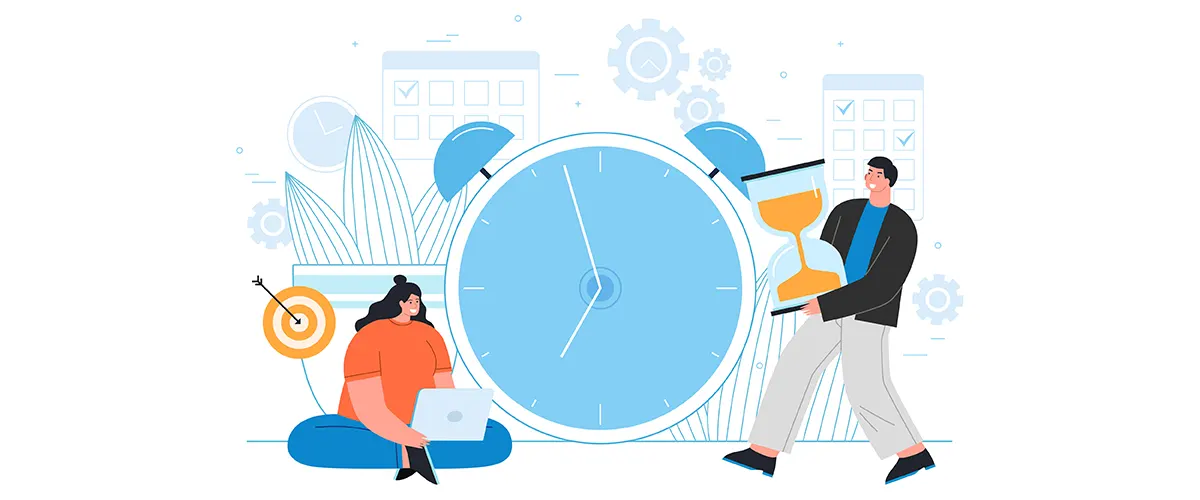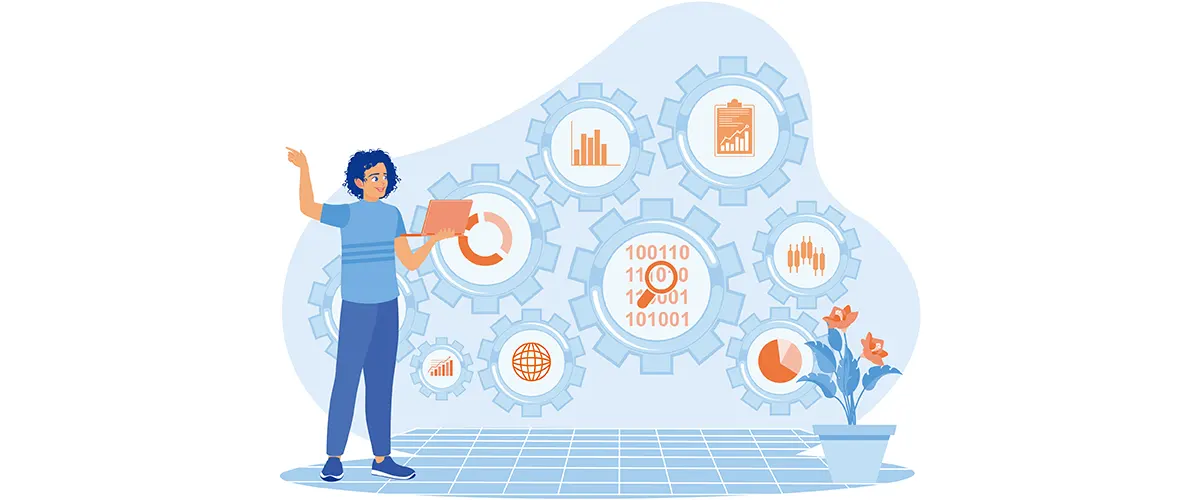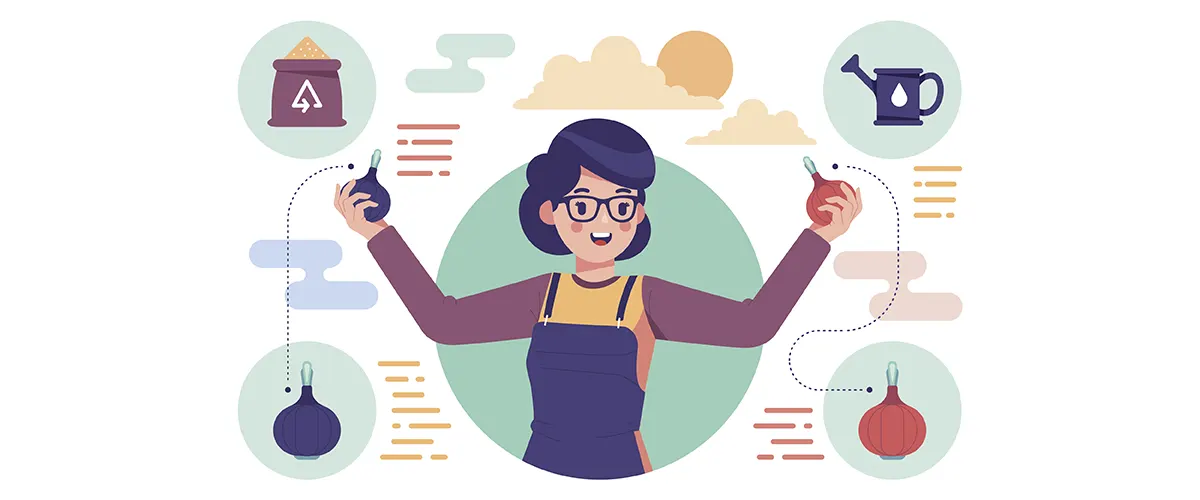Education, study and hard work make a great contribution to the life of a student and their future. It makes them smart, and exams are just an opportunity to prove their intelligence and show the learning hours put into it.
Now is the time to study as much as you can for the upcoming exams. Sit down, open the first chapter of your textbook, and start reading it from cover to cover. Is that all that is required?
From scientists to teachers to parents, everyone has their own learning hacks that they offer to students to prepare for exams. There’s plenty of information for students, from famous scientists like California Newport’s Reality Check for Working Smarter to classic tips from teachers.
Naturally, there are lots of great study tips and exam hacks for students, but in this blog, we’ll share some of the exam hacks and tactics that are realistically most effective for students.
- ▪ The 20 Proven Hacks for Students in 2024 to Score Well in Exams:
- ▪ 1. Organize Your Study Space
- ▪ 2. Time Management Techniques
- ▪ 3. Active Learning Strategies
- ▪ 4. Utilize Technology Wisely
- ▪ 5. Develop a Study Routine
- ▪ 6. Prioritize Your Tasks
- ▪ 7. Take Breaks
- ▪ 8. Mind Mapping
- ▪ 9. Healthy Lifestyle Choices
- ▪ 10. Practice Test Papers
- ▪ 11. Collaborate with Peers
- ▪ 12. Use Mnemonic Devices
- ▪ 13. Break Down Complex Concepts
- ▪ 14. Seek Help When Needed
- ▪ 15. Stay Positive and Manage Stress
- ▪ 16. Test-Taking Strategies
- ▪ 17. Review and Revise Regularly
- ▪ 18. Set Realistic Goals
- ▪ 19. Stay Consistent
- ▪ 20. Celebrate Achievements
- ▪ Conclusion
- ▪ FAQs on Exam Study Hacks
The 20 Proven Hacks for Students in 2024 to Score Well in Exams:
1. Organize Your Study Space
Students usually have their own preferences when it comes to the environment in which they study. However, students need to organise their study space whether it is indoors or outdoors. It is one of the most effective exam hacks. Some students prefer studying in crowded cafes, while others prefer studying in quiet places like libraries.
Even if you study at home, there are many benefits to setting aside a quiet corner or room in your home for studying.
Here are some important study materials to keep that can help you to organise your study space:
- Flashcards
- Notebook and pens/pencils
- Textbooks, revision guides, and exercise books organized and easily accessible
- Calculator
- Highlighter
- Proper lighting (natural light is best)
- Ergonomic Chair
- Desk
- Water
- Fresh Air
2. Time Management Techniques

The reality is that in a fast-paced, technology-driven world, proper time management has become increasingly important for students who want to succeed and minimize stress.
So what is time management? Simply put, it is the ability to plan and coordinate the time you spend on various tasks (such as homework or reviewing), and then carry out that plan.
This means, for example, that you decide to do all your homework between 6 pm and 8 pm tonight to hang out with your friends later.
Learning to manage time means learning other important (and transferable) skills. It is one of the most suggested exam hacks. Try some or all of these tips and techniques for effective time management.
- Prioritizing and Delegating
- Setting Short- and Long-Term Goals
- Effective Organizational Techniques
- Techniques for Learning (and Working) Effectively
- Be Realistic and Flexible
- Creating Task Lists
Check: Time Management Tips For Students
3. Active Learning Strategies
Active learning is one of the upcoming exam hacks. It will help you to learn using reading, writing, discussion, and problem-solving activities. It will encourage analysis, synthesis, and evaluation of study material. Without your knowledge, you will understand the concepts and feel confident to attempt the exam.
Active learning in the classroom also provides reflection to students on how well they have understood the material. Active learning creates opportunities for deeper learning. Active learning contradicts students’ traditional views of teaching and learning. Unfortunately, in schools, students are given information, study it, and take tests based on that information. Instead, active learning requires you to take risks and try learning strategies for the first time.
Some clever ways to teach active learning strategies to your students:
- Create Study Sheets
- Create Concept Cards
- Create Word Cards
- Create Question Cards
- Create Equation Cards
- Create a question card
- Create a self-test
- Notes text material
- Create a list of 20 topics that may appear on the exam
- Solve the problems
- Create an outline
- Summarize the material
- Create a Diagram with Related Materials
- List Steps in a Process
- Anticipate Essay Questions
- Answer End-of-Chapter Questions
- Prepare Study Group Materials
4. Utilize Technology Wisely

While some students have great confidence in their ability to pass an exam with minimal effort, many students want to prepare as best as possible for their upcoming exam. For decades, the standard approach to test preparation has been to take crash courses, tuitions or purchase a book with sample tests. Eventually, technology-based preparation has become one of the upcoming exam hacks and paving the way for the mobile learning options that are so popular today.
Here are some ways to prepare for your exam using mobile technology.
- Watch video.
YouTube and Vimeo have made it incredibly easy for anyone to post and watch educational videos on a variety of devices.
- Listen to the audio.
Another option for preparing for the exam is to listen to audio programs on your mobile device. Audio options include e-books, educational podcasts, lectures, and more.
- Exam preparation apps.
Some people benefit from being able to simulate the actual exam. Mock exams are available in both book and online formats, but there are also mobile apps specifically designed to help you prepare for professional certification exams and school entrance exams.
- Note apps.
Many students find that taking notes during presentations or while reading is an effective way to acquire knowledge. This may be because note-taking requires students to absorb information and repeat it in their own words.
5. Develop a Study Routine
A study plan is one of the exam hacks that help you achieve your learning goals. This plan involves planning your study units and taking enough breaks.
Taking the time to study allows you to break down tasks and assignments into manageable chunks. You will also find that you are better prepared for the exam by using one of these exam hacks.
Follow the step-by-step instructions below to create a realistic study plan.
- Analyze your individual learning style
- Evaluate your current efforts
- Create a realistic schedule
- Make study time part of your daily routine
- Try the Pomodoro Technique
Check: Toppers Study Time Table to Score High Marks
6. Prioritize Your Tasks
Prioritizing tasks during exam preparation is a key element of success and one of the important exam hacks. Here are some tips for prioritizing your tasks.
- Create a study plan: Make a list of all the topics you need to cover and allocate time for each. This will help you track your progress and ensure you cover all important topics.
- Identify the most important topics: Some topics are more important than others in terms of their impact on grades and final results. Identify these important topics and spend more time studying them.
- Use a to-do list: Write down all the tasks you need to complete and prioritize them based on importance. This will help you stay focused and avoid distractions.
- Take breaks: Taking regular breaks refreshes your mind and improves your focus. Prioritize breaks as part of your study plan.
- Focus on understanding: Focus on understanding concepts and principles, not just memorizing information. This will help you retain information better and improve your performance on exams.
- Practice regularly: Regular practice is essential for exam preparation. Prioritize practising past questions, mock exams, and sample questions.
- Get enough sleep: Good sleep is important for concentration, memory, and overall health. As part of your exam preparation, make it a priority to get enough sleep.
By following these tips, you can effectively prioritize your exam preparation tasks and increase your chances of success.
7. Take Breaks
Research shows that taking study breaks can improve your productivity, focus, energy, and creativity, rejuvenate your brain, and help you get more out of your study sessions. There are several effective ways to take a break from studying, depending on your personal preferences and what works best for you.
- Plan short breaks into your existing study schedule. Take a 15-minute break every 50 to 90 minutes to rest and recharge. Due to ultradian rhythms (natural concentration cycles that a human experiences repeatedly throughout her day), the brain can only concentrate for up to 90 minutes before needing a break.
- Be sure to follow your break schedule. You may need to experiment at first to determine the frequency and length of your breaks. However, once you set a break schedule for yourself, it’s important to stick to it. Even if you haven’t finished the material yet, study until you find a natural stopping point, then take a break.
- Schedule every break with a timer. This way, you won’t lose track of time during your break and can resume studying as planned. For example, set an alarm on your phone when you go out or use a kitchen timer when you take a meal break.
8. Mind Mapping

A mind map is a visual layout of lessons arranged radially around a central topic. This is her way of combining many ideas and concepts about one topic into one page. This is similar to a knowledge tree with subbranches for each major branch. The only difference is that it is a centrifugal approach rather than a linear structure.
The benefits of mind maps are:
- Mind mapping ensures meaningful learning:
One of the key aspects of good learning is the ability to connect previous knowledge with new knowledge. Mind maps provide an opportunity to find connections between different topics.
- Aids Memory and Remembering
Our brains do not store information in the form of words, sentences, or paragraphs. Instead, information is stored in the form of key points, charts, and images. Mind maps work similarly to the brain, so using mind maps for learning is beneficial. It becomes easier to absorb information.
- This is a more engaging and active form of learning
Passive learning techniques. For example, rereading, highlighting, and listening to lectures was not as effective as active learning.
9. Healthy Lifestyle Choices
During this stressful time, it’s easy for bad habits to take over. However, if you strive to live a healthy lifestyle, you can minimize your stress levels and achieve the best results on exam day.
- Follow a Healthy Routine
Having a routine is the best way to promote health and well-being. The routine helps students better organize their time and make room for healthy habits.
- Eat a healthy diet
Diet plays a very important role in maintaining a healthy lifestyle. Students should have healthy snacks available between study breaks. Peanuts, fox nuts and coconut water are healthier alternatives to salty chips and sugary, carbonated drinks.
- Timely Meals
Timely meals help students maintain a planned and organized life. Eating dinner late at night or eating junk food for dinner can cause digestive problems.
- Drink plenty of water
Students must stay hydrated. Students should consume plain water or healthy drinks such as coconut water, lime water or freshly squeezed juices.
- Regular Exercise
Students should include daily physical activities such as walking or cycling in their daily schedule. Physical activities are not only good for physical well-being but also for mental well-being. Physical activity helps release feel-good hormones that help regulate mood.
- Get enough sleep
Good sleep is very important for students to stay fresh and help them concentrate better on their studies. Staying up late should only be done for urgent reasons; Otherwise, it is important to sleep on time to maintain a healthy lifestyle. Ideally, a student should sleep between 7 and 8 hours.
10. Practice Test Papers
Practice questions help students quickly understand the exam process and recognize important concepts. It is one of the conventional yet most impactful exam hacks.
- Recognizing Exam Patterns: CBSE supplementary practice questions are usually designed to resemble the format and structure of the actual exam. This will help students become familiar with question formats, grading criteria, and deadlines.
- Self-Assessment: Additional CBSE practice questions allow students to take mock exams to assess their knowledge and exam preparation. You can identify their strengths and weaknesses and focus on areas that need development.
- Time Management: Time management is something that students learn how to achieve good results through practice. You can practice setting aside a specific amount of time for each section or question to ensure you complete your work within the allotted time.
- Increased Confidence: The more students practice, the more confident they become. Answering practice questions correctly will increase your confidence and reduce anxiety before the exam.
Check: How to Overcome Exam Fear?
11. Collaborate with Peers
Collaborating with peers for better learning outcomes has several benefits that can significantly improve your learning experience.
One of the main benefits is gaining new perspectives. When you study alone, you tend to get caught up in your own way of thinking. However, by collaborating with other students, students can gain new insights and different approaches to problem-solving. This leads to a deeper understanding of the topic and helps students think critically.
How to make the most of collaboration with peers:
- Set clear goals and expectations for group study sessions
- Maximize productivity with effective time management techniques
- Create positive relationships among group members Encourage participation and engagement
- Establish open communication channels for feedback and support
- Learn together by leveraging strengths and each other’s weaknesses
12. Use Mnemonic Devices
Mnemonics are memory techniques that help improve your ability to remember and retain information. Memory devices allow you to create shortcuts to information in your mind so you can quickly recall information.
For example, if you’ve ever sung the alphabet song to remember how to sort items alphabetically, you’re already familiar with some mnemonic approaches to memorization. Use these tips to your advantage when studying for usage tests. Too!
Learning Tips with Memory Devices
- Information Blocks: Break down complex information into smaller pieces to make it easier to remember. For example, if you create a new and difficult password for your account, it will be difficult to remember the entire string. If you divide it into parts and remember each part, it will be much easier to manage.
- Let’s sing: Music is a great memory tool – choose your favourite song and change the lyrics to the concepts and ideas you need to remember for the test.
- Create an acronym: An acronym uses a simple letter expression to represent a word or phrase that you need to remember.
13. Break Down Complex Concepts
Learning difficult concepts can be a daunting task, especially when you don’t have the right tools. It’s easy to feel overwhelmed and frustrated when dealing with complex ideas or new topics. Fortunately, there are ways to break down difficult concepts and deepen your understanding.
- Identify Difficult Concepts
The first step in breaking through difficult concepts is to identify them. It’s important to recognize which topics and ideas are the most difficult for you to understand.
- Analyze and simplify difficult concepts
The next step is to analyze and simplify the difficult concepts that you have identified. Concepts are broken down into smaller, more manageable parts. Start by asking yourself questions such as “What are the main ideas or components of this concept?” or “What key terms are used to describe this concept?”
- Use visual aids to understand difficult concepts
Using visual aids is a great way to better understand difficult concepts. Diagrams, graphs, and illustrations help make complex ideas easier to understand.
14. Seek Help When Needed
Asking your teacher for help can sometimes be scary or intimidating. Students may not know how to properly approach a teacher or what to say. However, you can ask your teacher for help by using strategies such as talking to your teacher at the right time and being clear about what kind of help you need.
Take a deep breath and remember that asking your teacher for help is an adult thing to do.
15. Stay Positive and Manage Stress
A little stress can be a good thing and can give you the motivation you need to get things done. However, stress can sometimes be difficult to deal with (especially during exam periods).
Here are some tips to stay stress-free.
- Remember to breathe
- Exercise and get enough sleep
- Set realistic goals
- Ask teachers and friends for help
- Believe in yourself
Check: How To Deal with Exam Stress?
16. Test-Taking Strategies
The best way to ensure you get great marks you want is to understand the material thoroughly. However, good exam strategies can make the difference between a top grade and an average grade. Learning these skills can also help reduce stress and reduce exam anxiety.
Here are the best strategies you can do to ensure you’re prepared for your upcoming exams.
- Developing Good Study Habits
Because it takes time to understand and memorize test information, it is very important to develop good study habits well in advance of the exam day.
- Don’t “cram”
It seems like a good idea to spend hours memorizing the required material the night before the test.
In fact, cramming for exams is extremely counterproductive. Not only are you less likely to retain the information you need, but cramming increases stress, negatively impacts sleep, and reduces your overall preparedness.
- Develop Positive Habits
Don’t underestimate the importance of confidence and a positive attitude when preparing for an exam.
Positive rituals can help you fight negative thoughts, exam anxiety, and lack of concentration that can easily threaten your success on exam day.
17. Review and Revise Regularly
Regular review and revision are important for a successful attempt at the exam. Here are some strategies that will help you revise each subject regularly:
- Create a revision schedule: Create a weekly or biweekly revision schedule that allocates a specific time slot to each subject. Prioritize subjects based on exam weight and personal difficulty.
- Use active recall techniques: Instead of passive reading, use active recall techniques. Test yourself on important concepts, formulas, and facts. Create flashcards, summary notes, or mind maps to help you remember.
- Review your class notes and textbook: Please review your class notes and textbook regularly. Focus on understanding core concepts. Highlight or underline important points to make them easier to repeat.
- Solving practice problems: Practice solving problems regularly. This strengthens your understanding and helps you apply the concepts. Try increasing the difficulty level of the problems gradually.
- Use technology: Use technology to fix it. Make learning interactive with study apps, online quizzes, and digital flashcards. Consider recording an audio summary or creating a digital learning aid.
Check: Last Minute Exam Revision Tips for Students
18. Set Realistic Goals
One of the main benefits of student schedules is that they allow students to set realistic learning goals.
- By breaking down learning materials into manageable chunks, students can create actionable and motivating plans.
- When determining learning goals, students should consider their strengths and weaknesses and the amount of time they can devote to each subject.
- This will help you create a balanced lesson plan that can cover all the topics you need.
19. Stay Consistent
Staying consistent in any type of exam requires a combination of discipline, effective planning, and a positive attitude. Here are some tips to help you stay consistent.
1. Create a study plan
2. Set realistic goals
3. Prioritize subjects
4. Regular revision
20. Celebrate Achievements
Celebrate your success as a student. Before you see results, be consistent, stick to a schedule, set high goals, and celebrate when you achieve them. Celebrations always put us in a good mood. Therefore, celebrating your learning will make you feel better. Celebrating learning has a very important and positive impact on learners’ memory and motivation.
Conclusion
Please note that customizing and adapting hacks is a continuous process. As you prepare for the exam, additional adjustments may be necessary based on your changing needs and priorities.
A well-planned schedule and hacks are essential to excel in your studies. By understanding the importance of effective hacks, implementing additional study tips, prioritizing self-care and rest, and adapting as needed, students will optimize their learning potential and achieve academic success. can do. So, if you are a student, identify the hack that suits you. Learn smart and study hard.
FAQs on Exam Study Hacks
Q1. What are the three most important study hacks for exams?
Ans. The three most important study tips are: –
– Be aware of what your teacher wants.
– Create a study plan.
– Don’t try to learn too many things at once.
Q2. Are study hacks and tips effective for students as last-minute preparation?
Ans. Yes, study hacks, if structured and followed correctly, can help students pass exams.
Q3. What are the best study tips for exams?
Ans. The most effective study tips are: –
• Time Management
• Choose Quality over Quantity
• Choose Your Environment Carefully
Q4. Is there a single best tip to do well on exams?
Ans. To get a good score We recommend using a combination of learning hacks. A single trick is unlikely to work.
Q5. What are the steps to apply the Pomodoro Technique?
Ans. Follow the steps below to apply the Pomodoro technique:
• Get a to-do list and timer.
• Set a timer for 25 minutes and focus on one task until the timer goes off.
• When you finish a session, mark your Pomodoro and write down what you completed.
• Now enjoy your 5-minute break.
After doing four Pomodoros, take a longer, more restorative break of 15 to 30 minutes.



